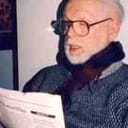Stay in the Loop
BSR publishes on a weekly schedule, with an email newsletter every Wednesday and Thursday morning. There’s no paywall, and subscribing is always free.
Camille Paglia's 'Salon' interview

Found: An intellectual with the common touch
PATRICK D. HAZARD
Camille Paglia, that University of the Arts intellectual firebrand, has been too long absent from the Salon website. What a pleasure to read her recently once again. When I wrote my doctoral dissertation on John Fiske 50 years ago, it was to discover how difficult it was for a humanist without private means or a university job to earn a living as a professional historian. I took my epigraph from the New England preacher Theodore Parker, who contended that the intellectual in our new egalitarian democracy had to “think with the saint and sage, but speak with common men.” There have been damn few such creatures in our cultural history: William James, John Dewey, Dr. Albert Barnes, W.E.B. Dubois— and, in our generation, surely Camille Paglia.
I hadn’t realized until recently how hard it had been for Paglia (born in upstate New York to two Italian immigrants in 1947) to achieve the academic status to which she was entitled. Indeed, Paglia has been a quirky, tactical troublemaker from the beginning. I just picked up on her with her first major work, Sexual Personae: From Nefertiti to Emily Dickinson (Yale U. Press, 1990). It had been her Yale dissertation (1974), and she offered it to seven publishers and five agents before she finally talked Ellen Graham at Yale to take a chance on a controversial thesis. One can imagine that this “feminist whom feminists love to hate” was always a feminist, long before she found intellectual reasons for her beliefs. Her father was teaching romance languages at LeMoyne College when a Belgian colleague did Camille the favor of a gift of Simone Beauvoir’s The Second Sex.
A “feminist bisexual egomaniac”
Paglia had been working for three years on a biography of Amelia Earhart until that French feminist broadened her horizons. Her “peers” mocked her as a feminist bisexual egomaniac. Even though Paglia’s Yale mentor Harold Bloom helped her get a job at Bennington, that freewheeling, freethinking college up in the country, she quit in disgust in 1979 over intellectual disagreements. Paglia became one of those itinerant scholars who are such a disgrace to our new system of $100,000 star professors surrounded by proles without health insurance or pension rights. She even taught nights at Sikorsky Helicopters, and scraped by free-lancing for that New Haven alternative paper, The Advocate, with topics like the oldest pizzeria in town, or a house that had been a stop on the Underground Railroad.
Basically, Paglia’s wrangle with the feminist establishment was that they taught young women to hate men and were themselves intellectually deficient in art history, science and history. It was a blessing for her to find a spot in 1984 as a professor of humanities and media studies at the University of the Arts, which had shrewdly blended the Philadelphia College of Performing Arts with the Philadelphia College of Art in 1987. Ever since reading Sexual Personae, I’ve been mesmerized by Paglia’s capacity to relate the most demotic aspects of our Pop Culture with very esoteric High Culture. She hangs out intellectually with the likes of Bill Maher and Matt Drudge as well as her Yalies.
In the current interview in Salon, for example, this activist Democrat worries about Condi Rice’s current agenda, and sees part of her predicament: Rice’s Ph.D. (earned under Madeline Albright’s father at the University of Denver) prepared her to deal with a Cold War that’s no longer here.
Is Bush on the mental edge?
Consider Rice’s last visit to Baghdad— where her plane had to circle the field to avoid surface to air rockets, hop a helicopter to the Green Zone because of too many IED’s on the highway, and meet the prime minister in the dark because the electricity failed. The Bushies chose Rice and Powell to wean the African-Americans away from the Dems, but that didn’t make it easier for Condi and the general. Paglia worries about Bush’s mental state, inferring from his intonations and pace that he is living on the edge.
Raised a Roman Catholic, Paglia talks boldly about being a practicing atheist— at the same time she urges college students to study the history of religions, as a necessary tool to maintain ethical balance in our confused civilization.
What a talk show host Paglia could be. NPR has probably become too timid to give her a slot. She worries about the conservative ranting that’s going over our airwaves. Such blather is antipathetic to the kind of humanism she professes. Will we ever grow up enough in Philly or the United States to listen to Ms. Paglia? Long shot, but not impossible.
PATRICK D. HAZARD
Camille Paglia, that University of the Arts intellectual firebrand, has been too long absent from the Salon website. What a pleasure to read her recently once again. When I wrote my doctoral dissertation on John Fiske 50 years ago, it was to discover how difficult it was for a humanist without private means or a university job to earn a living as a professional historian. I took my epigraph from the New England preacher Theodore Parker, who contended that the intellectual in our new egalitarian democracy had to “think with the saint and sage, but speak with common men.” There have been damn few such creatures in our cultural history: William James, John Dewey, Dr. Albert Barnes, W.E.B. Dubois— and, in our generation, surely Camille Paglia.
I hadn’t realized until recently how hard it had been for Paglia (born in upstate New York to two Italian immigrants in 1947) to achieve the academic status to which she was entitled. Indeed, Paglia has been a quirky, tactical troublemaker from the beginning. I just picked up on her with her first major work, Sexual Personae: From Nefertiti to Emily Dickinson (Yale U. Press, 1990). It had been her Yale dissertation (1974), and she offered it to seven publishers and five agents before she finally talked Ellen Graham at Yale to take a chance on a controversial thesis. One can imagine that this “feminist whom feminists love to hate” was always a feminist, long before she found intellectual reasons for her beliefs. Her father was teaching romance languages at LeMoyne College when a Belgian colleague did Camille the favor of a gift of Simone Beauvoir’s The Second Sex.
A “feminist bisexual egomaniac”
Paglia had been working for three years on a biography of Amelia Earhart until that French feminist broadened her horizons. Her “peers” mocked her as a feminist bisexual egomaniac. Even though Paglia’s Yale mentor Harold Bloom helped her get a job at Bennington, that freewheeling, freethinking college up in the country, she quit in disgust in 1979 over intellectual disagreements. Paglia became one of those itinerant scholars who are such a disgrace to our new system of $100,000 star professors surrounded by proles without health insurance or pension rights. She even taught nights at Sikorsky Helicopters, and scraped by free-lancing for that New Haven alternative paper, The Advocate, with topics like the oldest pizzeria in town, or a house that had been a stop on the Underground Railroad.
Basically, Paglia’s wrangle with the feminist establishment was that they taught young women to hate men and were themselves intellectually deficient in art history, science and history. It was a blessing for her to find a spot in 1984 as a professor of humanities and media studies at the University of the Arts, which had shrewdly blended the Philadelphia College of Performing Arts with the Philadelphia College of Art in 1987. Ever since reading Sexual Personae, I’ve been mesmerized by Paglia’s capacity to relate the most demotic aspects of our Pop Culture with very esoteric High Culture. She hangs out intellectually with the likes of Bill Maher and Matt Drudge as well as her Yalies.
In the current interview in Salon, for example, this activist Democrat worries about Condi Rice’s current agenda, and sees part of her predicament: Rice’s Ph.D. (earned under Madeline Albright’s father at the University of Denver) prepared her to deal with a Cold War that’s no longer here.
Is Bush on the mental edge?
Consider Rice’s last visit to Baghdad— where her plane had to circle the field to avoid surface to air rockets, hop a helicopter to the Green Zone because of too many IED’s on the highway, and meet the prime minister in the dark because the electricity failed. The Bushies chose Rice and Powell to wean the African-Americans away from the Dems, but that didn’t make it easier for Condi and the general. Paglia worries about Bush’s mental state, inferring from his intonations and pace that he is living on the edge.
Raised a Roman Catholic, Paglia talks boldly about being a practicing atheist— at the same time she urges college students to study the history of religions, as a necessary tool to maintain ethical balance in our confused civilization.
What a talk show host Paglia could be. NPR has probably become too timid to give her a slot. She worries about the conservative ranting that’s going over our airwaves. Such blather is antipathetic to the kind of humanism she professes. Will we ever grow up enough in Philly or the United States to listen to Ms. Paglia? Long shot, but not impossible.
Sign up for our newsletter
All of the week's new articles, all in one place. Sign up for the free weekly BSR newsletters, and don't miss a conversation.

 Patrick D. Hazard
Patrick D. Hazard